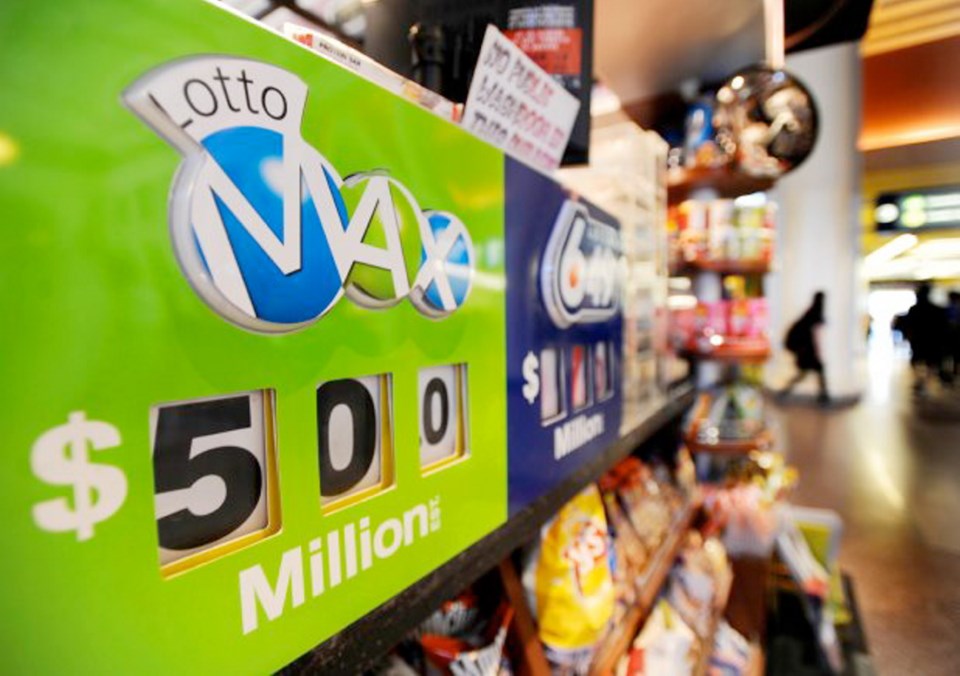One of the biggest jackpots in Canadian lottery history was up for grabs Friday night — an estimated $50 million Lotto Max top prize, plus another 50 prizes of a million bucks apiece.
Hope the winners have an easier time cashing their cheque than a group of Victorians did.
It’s a story that should interest anyone belonging to a lottery pool.
The group — 53-year-old Dan Smith, plus a handful of local seniors — is one of those where everybody chucks in $5 a week and, if lucky, shares the winnings.
On April 17, the group won $8,474 on the Lotto Max. “I was happy,” Smith said. “My anniversary was coming up and I thought ‘perfect.’ ”
Smith drove the woman who does the ticket-buying to the casino, where larger wins can be collected. “Did you win as an individual or as a group,” she was asked. “Group,” she replied, so the casino issued a cheque in her name with the words “in trust” underneath. That wording is standard practice at lotteries across Canada.
The idea is to guard the lottery corporations against being dragged into disputes over the division of winnings.
Except when Smith drove the ticket-holder to her bank, it wouldn’t cash the cheque, saying it didn’t know the identity of the others in the trust. So the pair tried Smith’s credit union, but got turned away. Two other financial institutions rejected them, too. No one wanted to take the cheque without an existing trust account.
One bank told Smith that setting up such an account would need the assistance of a lawyer, and that every time someone entered or left the group, all the members would have to trek down to the branch to approve the change.
For heaven’s sake, this is a $5-a-week lottery pool whose members top out at 96 years of age, replied Smith.
Alas, not even the lottery corporation could get the banks to budge, though after several weeks (by which time some of the pool members had gone on spending sprees with money they did not yet have), Smith finally found one that reluctantly took the cheque.
At Coast Capital Savings, a spokeswoman said all financial institutions are bound by the same rules. If the name on the cheque — including the words “in trust” — doesn’t match the name on the account, it’s a no-go. She suggested working with a lawyer to set up a trust, or going through the lottery corporation’s banker.
But the situation she described doesn’t really jibe with that related by the B.C. Lottery Corp., where they say stories like Smith’s are rare. The corporation has been issuing “in trust” cheques for years without a problem — until now.
“Players have made us aware of just a few instances in the last year where players have had difficulty,” spokeswoman Laura Piva-Babcock said Friday.
The lottery corporation plans to approach financial institutions to find out what’s going on — whether they have changed their policies, tightened the application of them, or what.
Smith is left shaking his head. His group followed all the suggestions on the “group play” section of B.C. Lotteries’ website — appointing a captain and downloading a form listing all the group members — but saw nothing about setting up a trust account.
He doesn’t know if his group was just unlucky — approaching the wrong financial institutions on the wrong day — or was caught in the middle of a growing systemic problem in which all the (corporate) players are anxious to avoid responsibility for doling out the winnings. “I think everybody is afraid of being sued,” he says.



